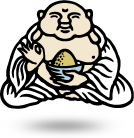5 Reasons Why Provenance Matters
Posted by Anthony Nicalo on Wednesday, March 10th, 2010Tags for this Article: fair trade, food safety, health, obesity, organic, provenance, sustainability

Seared Tenderloin with braised spinach, tomato confit, tomato powder and peanut veloute.
This lovely looking dish is actually death on a plate. In the past year there have been massive recalls of spinach, tomatoes, beef (all for ecoli) and peanut butter (salmonella). Understanding the who, what, why, where and how of our food is more important than ever.
We live in a world filled with opportunity, but also with great challenges. At times, it feels impossible for any individual to make the world a better place. But each and every day, you really can make a difference. The struggles we face as individuals and a society are complex and interconnected issues. Food is no exception, but this is also its strength. The food we eat has direct and clear implications for everything from clean water and fossil fuel use to hunger and obesity, the power to change the world is right in front of you- on your plate.
Here’s why provenance, from provenir (Fr.) “the origin or source of something,” matters to you, your family and the planet.
1. Health. Not only are whole foods superior nutritionally, many are even better when grown in healthy soil. Beyond that, the impact of poor diets on our health is immense. Obesity is not only the leading risk factor for type2 diabetes, the direct medical costs are $93 billion dollars each year.
2. Food Safety. As you can see from the photo above a beautiful looking plate can still make you sick. This is despite a massive number of government regulations intended to make food safe. Just last week, a blogger broke the story of a massive meat recall before the USDA.
3. Environment. Sustainability does not mean a particular product is fair trade or organic, etc. An individual product cannot, by definition, be sustainable. Sustainability is a system-wide condition, not a product level benefit. We need to understand the underlying process and the implications for a larger system- relying on a reductionist label is insufficient.
4. Farmers matter. The best farmers have an amazingly wide array of skills- biology, horticulture, business, accounting, mechanics…Farmers connection to and understanding of the planet’s natural systems are one of our most important links to the Earth. Farmers can teach us how to live and work in harmony with nature. One of the great farmers of all time, Masanobu Fukuoka, explains, “The ultimate goal of farming is not the growing of crops, but the cultivation and perfection of human beings.”
5. Food is not a commodity. Although agriculture has inspired many of our current economic systems, food should not be a commodity, It is a biological necessity, and, as such, should be regarded as distinct from copper, iron ore and light sweet crude.
*Bonus*
Cooking is important. As Harvard Professor of Biological Anthropology, Richard Wrangham explains, “It’s the development that underpins many other changes that have made humans so distinct from other species.”


Posted on April 4th, 2010
Degan Beley says:
great post, Anthony. Evan and I should have printed this out for our Social Bites dinner.
Posted on April 9th, 2010
Anthony Nicalo says:
Thanks, Degan. Wished I would have made the Social Bites dinner. Congratulations on your win. The Sloping Hill Farm porchetta you made looked fantastic!